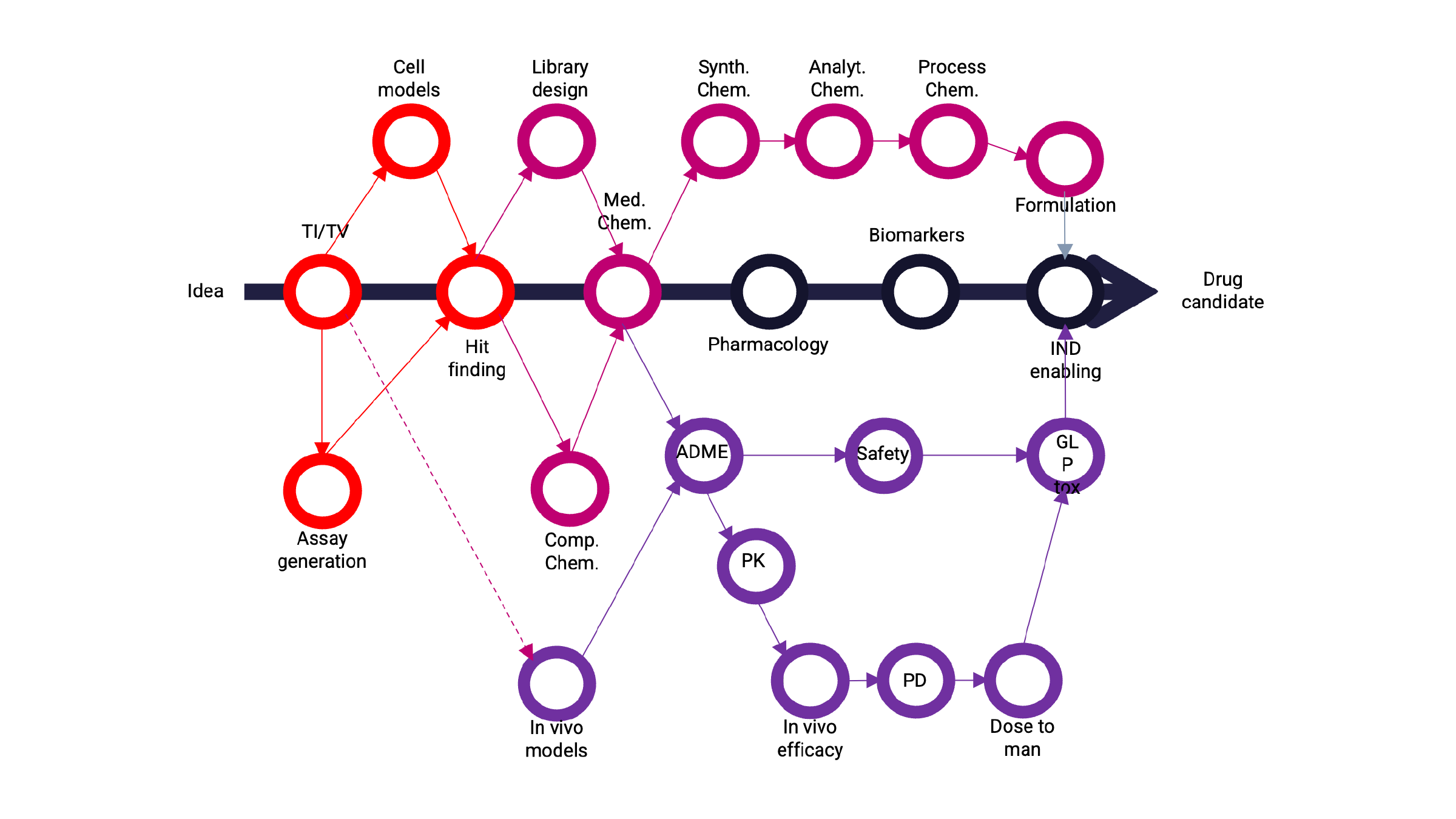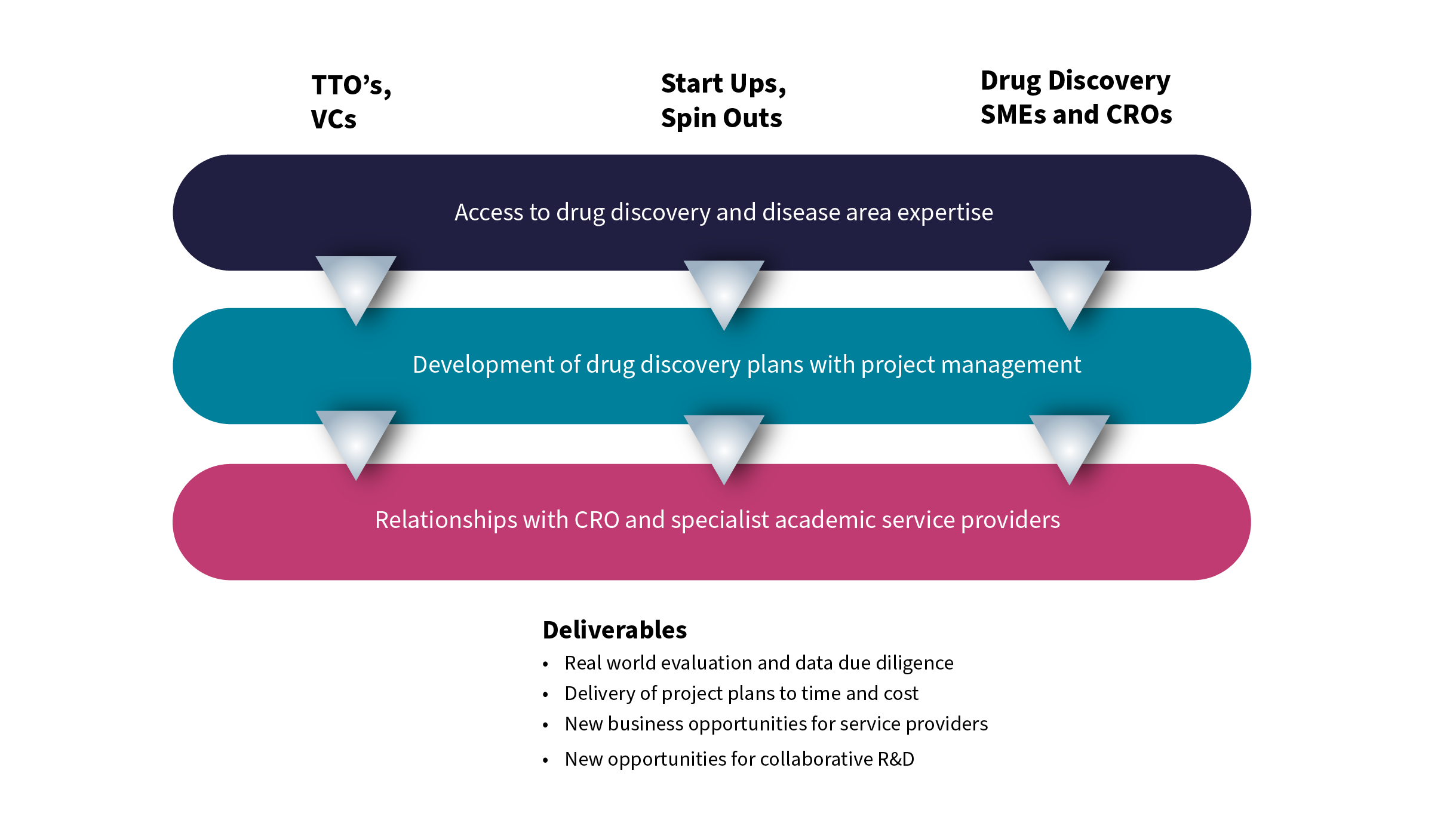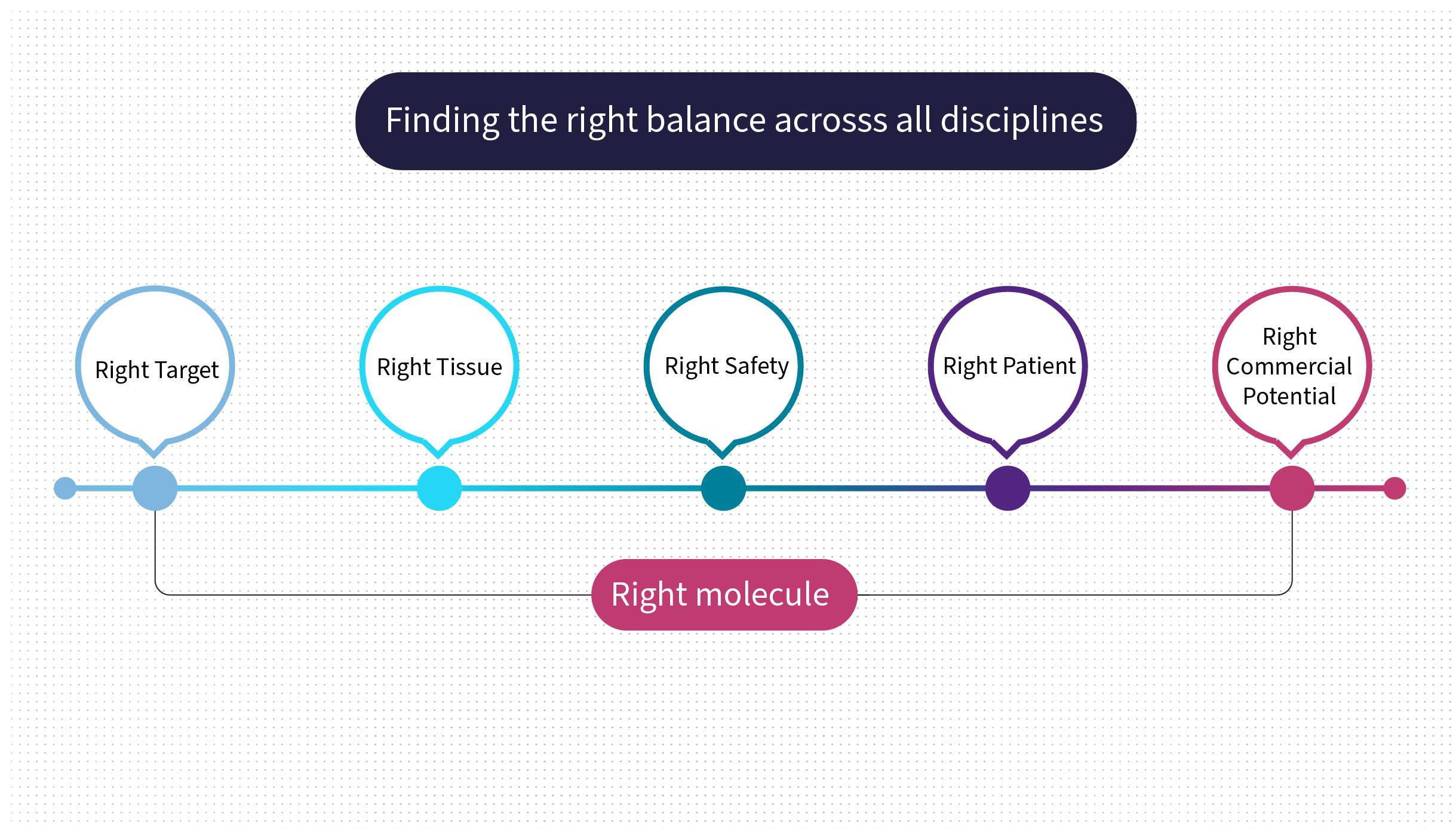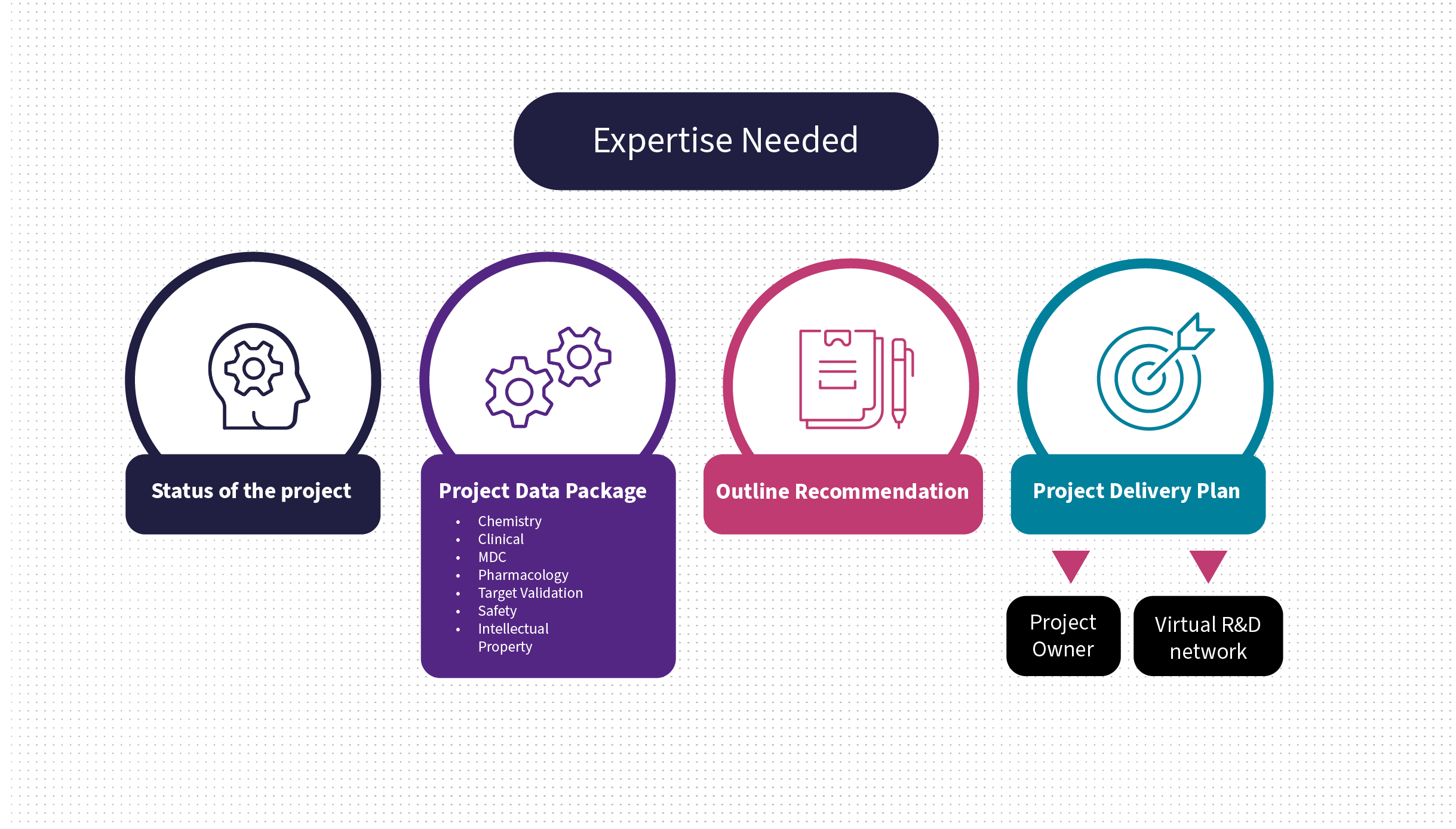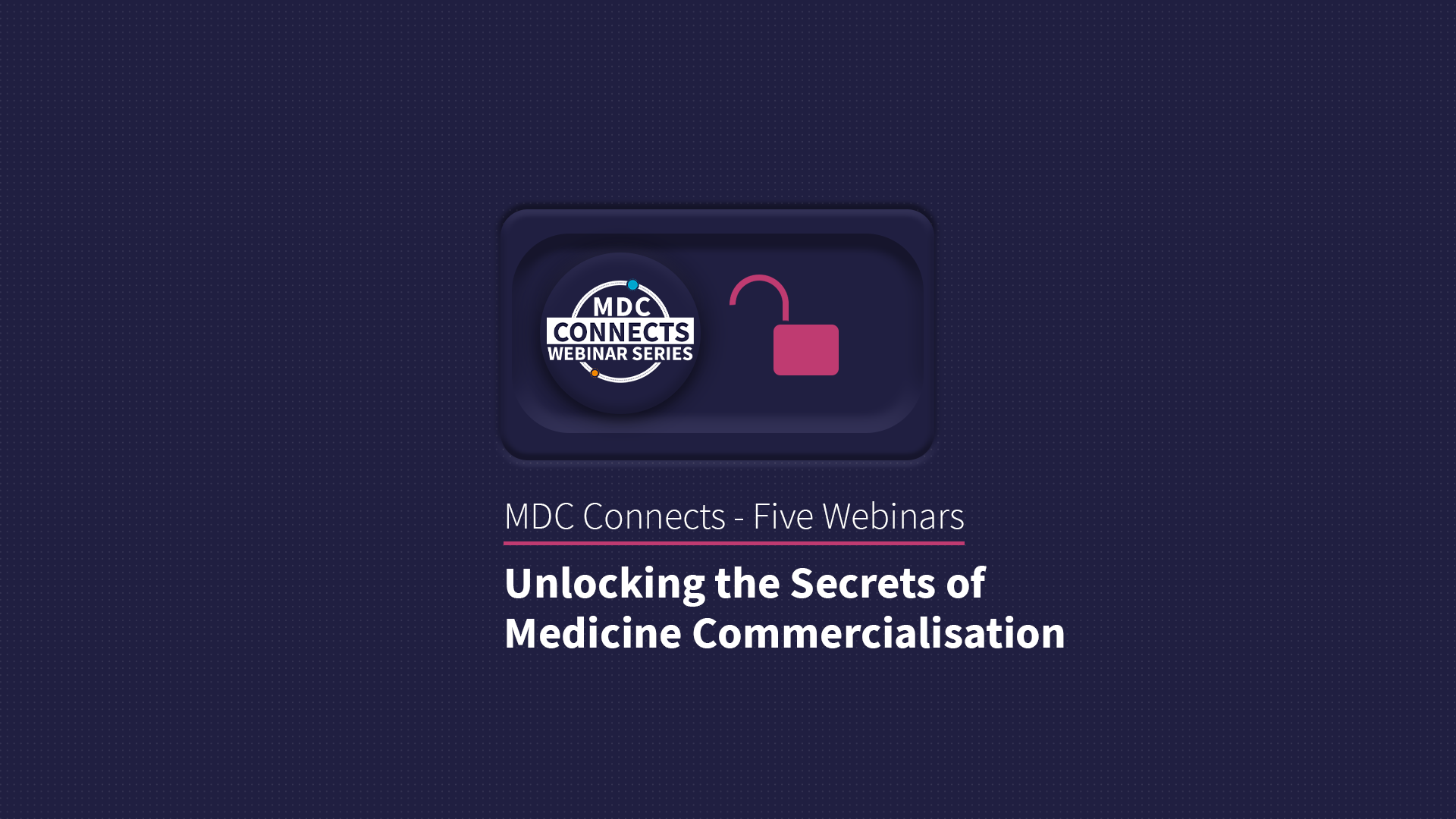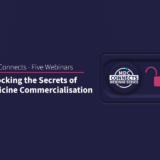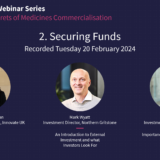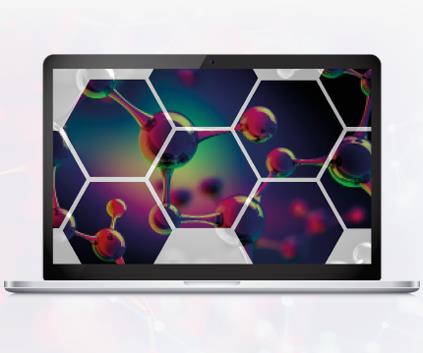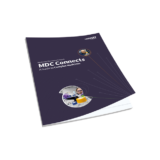Accessing the Skills for Successful Drug Discovery
Graeme Wilkinson, Head of Virtual R&D, MDC
3 July 2024
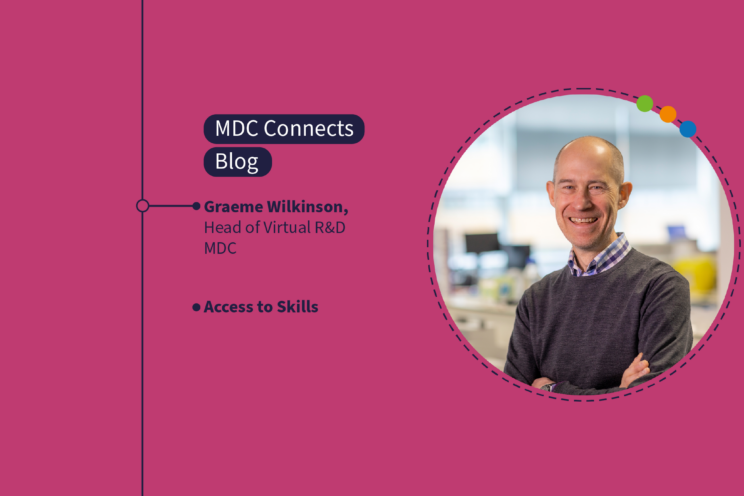
For start-ups and SMEs, in particular, accessing the skills for successful drug discovery is clearly of crucial importance. However, early-stage organisations usually work with limited resources, so getting the skills fit absolutely right is imperative from both the idea-development and financial perspectives.
In this blog – informed by our recent ‘Building the Science’ webinar – we explore the skills that are required and how they can be efficiently brought together. This process is often a mix of accessing the right people externally in parallel with developing the abilities in your internal team.
In many cases founders will have an in-depth understanding of the skills needed to develop their innovation, but perhaps less experience of pulling a project together. Often such projects will run in a ‘virtual’ setting – for example, a start-up may not have its own lab, but working with third parties can provide the facilities and additional skills required.
Drug Discovery can be Complex, Costly and Resource-intensive
Modern drug discovery is a multi-disciplinary process. Historically, for example within a large pharma organisation, all required specialisms and expertise would be provided in-house. The model today – even for large companies – is increasingly based, and dependent on, outsourcing and collaboration.
Cost pressures, fewer resources, increasing dependence on grants and private funding, skills shortages, lack of lab availability – the issues facing an early-stage organisation are manifold. Yet the inherent agility of a newer, smaller company can be an asset in accessing ‘right time, right place’ external expertise cost-efficiently.
Establishing a clear plan which identifies the skills and resources needed at given points provides a sound foundation for a successful drug discovery journey. Having this ‘itinerary’ in place from the outset is a powerful tool in avoiding wasted time and resources enroute.
Not Just Drug Discovery Skills…
There are a variety of skills to plan for in the drug discovery process, from the purely scientific to the entrepreneurial:
- The ability to understand the target and the molecule
- The ability to understand the disease indication
- The ability to understand the market and regulatory requirements
- The expertise needed to make the science investable
Just as important in progressing from idea to drug candidate are more general but highly transferable skills, for example:
- Communication
- Teamwork
- Business acumen
- Self-motivation
- Adaptability
- Management skills
- Critical thinking and problem-solving
While some of these skills will be present in the founding team, it is clear that will be a need to bring some of these into the mix. It is also true that there are many ways in which new skills can be acquired by team members as the drug discovery journey progresses.
Who Needs these Skills and Why
The need for these skills is felt by every kind and size of organisation involved in drug discovery – from spin-outs to large, established companies; SMEs to CROs; universities to venture capital funders. This pan-industry demand is part of the reason why many crucial abilities are currently in short supply.
Developing a Plan for Success
AstraZeneca has developed a useful planning framework to which we at MDC often refer.
The so-called ‘Five Rs’ framework shows the factors that can inform choosing the right balance of skills to match various actions and disciplines within the drug discovery pipeline.
- Right target
- Right tissue
- Right safety
- Right patient
- Right commercial potential
Basing a project plan on such a framework can highlight ahead of time which skills will be needed – giving an early ‘heads-up’ on when and for how long specific expertise will be required.
Identifying Required Expertise
Clearly, it is essential to understand the scope of a project in order to identify the skills needed to move forward successfully.
A thorough analysis of the project’s status will clarify what data is currently held, whether it is fit for purpose and where any gaps may lie. This in turn can inform which skills will be needed to build the project data package – chemistry, pharmacology and IP, for example. Organisations such as MDC can help in framing the questions which contribute to creating a project delivery plan.
Accessing Skills: Where to Start?
As an early-stage company or when beginning a new project, sourcing or developing the skills you know you will need can be difficult. There are several respected membership organisations who can help, such as ELRIG, BioNow, OBN and the British Pharmacological Society.
Similarly, the UK is well-served with innovation clusters and service providers across the country.
Such organisations can be invaluable in testing hypotheses, networking, professional development and personal upskilling. Many innovation clusters and bio parks will run drug discovery accelerator programmes. These involve joining a cohort of similarly early-stage organisations, where there are opportunities to learn, upskill, share pooled knowledge and all manner of often overlooked but necessary support such as IP, legal and finance, targeted specifically at start-ups, spin-outs and nascent SMEs.
In Summary
Drug discovery is clearly a complex field and navigating it successfully depends on having a ‘team sport’ mentality.
From an entrepreneur’s perspective, knowing what skills will be needed – and when – is crucial to progressing the project allowing the team to integrate their science with commercial know-how. Making productive connections via networking, learning from experts and developing professionally are also crucial activities – and incidentally, they can be highly rewarding from a personal viewpoint.
To recap:
- Work to make sense of the journey
- Know your science
- Vary your experience
- Network – essential in meeting new people and accessing expertise
- Learn from the experts – via meetings, workshops and webinars, for example
Graeme Wilkinson, Head of Virtual R&D, MDC

